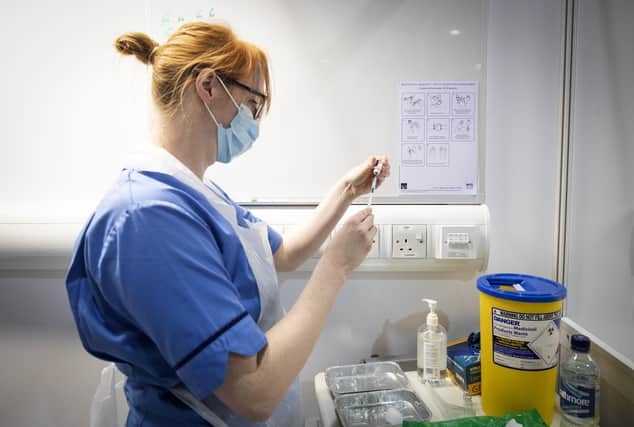Coronavirus: How might digital vaccine passports work?


Scotland's Health Secretary Jeane Freeman explained work was ongoing to develop the tools needed for digital vaccine certificates while keeping the ethical and equality questions under review.
It follows a similar approach endorsed by the Prime Minister, which he is expected to outline in greater detail at this evening’s Downing Street press conference.
Advertisement
Hide AdAdvertisement
Hide AdDespite earlier dismissing the idea, this weekend Cabinet Office minister Michael Gove suggested the UK could follow the "vaccine passport" scheme already in use in Israel.
He said: "The Israeli approach involves a smartphone app and the NHS app could serve a similar purpose here.”
The system is expected to consider three factors: vaccination, a recent negative test, or possible immunity based on a positive test in the last six months.Members of the public would then have to prove their status using an app at certain venues.
These are expected to be used for large events like sporting fixtures or concerts.
Plans for use in pubs appear to have been dropped, but they may still be required for areas in which social distancing is difficult such as theatres or nightclubs.
The PM has insisted this could then give “maximum confidence” to businesses and the public as society returns to normal and restrictions ease.
They are not planned to be used long term for things such as entrance to shops or use of public transport.
It is expected that in less than two weeks, everyone in the top Joint Committee on Vaccination and Immunisation priority groups will have been offered a first dose of vaccine, including all over-50s, unpaid carers and those with underlying health conditions.
Advertisement
Hide AdAdvertisement
Hide AdThere will also be exemptions for people for whom vaccination is not advised and repeat testing would prove to be difficult.
It follows other countries already working on requirements for people to prove their status before arriving.
Ms Freeman earlier said she favours digital certificates over paper versions as she believes the latter would place an extra unnecessary burden on the health service.
If you haven't already, please consider supporting our trusted, fact-checked journalism by taking out a digital subscription.
Comments
Want to join the conversation? Please or to comment on this article.